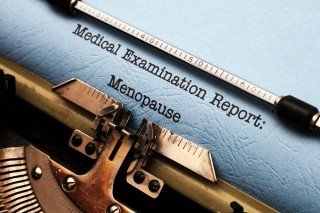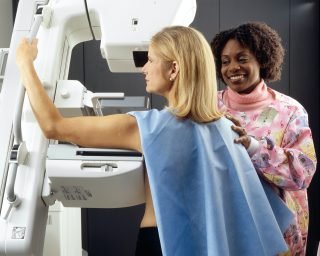An unintended consequence of the current health crisis has been the delay of, or lack of focus on, “normal” health screenings, as well as the lack of access to treatment for health conditions other than COVID-19.
Menopause, however, and the related risks of an increase in the potential for breast cancer, don’t simply stop because of a swiftly spreading coronavirus.
Before the link between hormone replacement therapy (HRT) and breast cancer risk was established, many menopausal women opted for HRT to ease symptoms such as hot flushes, night sweats, fatigue, sleep, and weight-gain issues. Yes, the number of women taking HRTs has declined dramatically over the past decade. However, there are still a number of women who continue to use them for a prolonged period. During this particular time in our global history, it’s more important than ever for women to know about HRT and the related incidence of possible breast cancer.
HRT and Breast Cancer – What’s The Link?
There are two types of HRT available. In the short term, estrogen-only HRT appears less risky. This is according to an analysis of studies covering more than 100 000 women with breast cancer, and the risk of developing breast cancer within 20 years of use of HRT. Indications include:
- Combination HRT contains the hormones oestrogen and progesterone. It increases the risk of breast cancer significantly (from 6.3% to 10.3% after 10 years of use, compared to non-users).

alexskopje/shutterstock
- Eestrogen-only HRT contains only estrogen. This increases the risk of breast cancer by only moderately (from 6.3% to 7.4% after 10 years of use, compared to non-users).
It must be emphasized that being diagnosed with breast cancer doesn’t necessarily mean that you will die of it. If you are on HRT, and for at least 10 years after that, you should have regular annual screening mammograms. Virtually all screen-detected breast cancers will be cured with appropriate multidisciplinary treatment. Remember, too, that HRT also has benefits such as the prevention of osteoporosis and severe hot flushes, to name but two.
Is there a risk?
Research suggests that, since breast-cancer risk is dependent on the duration of HRT use, it’s advisable to request whether you can take a lower-dose formula. Further, speak to your doctor about the chance of taking it for the shortest time possible. If you’ve been diagnosed with breast cancer or have tested positive for a genetic abnormality that causes breast cancer, such as disease-causing BRCA1 or 2 mutations, HRT should not be used.
If you’ve never been genetically tested for breast cancer-causing genetic mutations, you are likely to have an abnormal breast-cancer gene only if the following applies to you:
- You have first-line blood relatives diagnosed before the age of 50.
- There is both breast and ovarian cancer in your family, particularly in a single individual.
- Women in your family have had cancer in both breasts.
- A man in your family has had breast cancer.
- You are of Ashkenazi Jewish (Eastern European) heritage.

Photo by National Cancer Institute on Unsplash
However, it must be noted that genetic mutations cause only about one in 10 breast cancers. Therefore, just because you don’t have the gene mutation doesn’t mean you are immune. In fact, 70% to 80% of women who have breast cancer have had no family history of the disease.
Bottom line
Whether you take HRT, there are also lifestyle choices you can make to keep your breast-cancer risk as low as it can be. These include maintaining a healthy weight, regular exercise, limiting alcohol consumption and stopping smoking. However, if your quality of life is being affected, you should speak to your doctor to receive the medical advice and help that you need.



![women [longevity live]](https://longevitylive.com/wp-content/uploads/2020/01/photo-of-women-walking-down-the-street-1116984-100x100.jpg)










